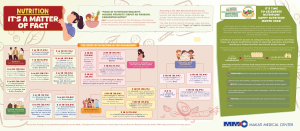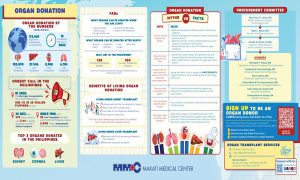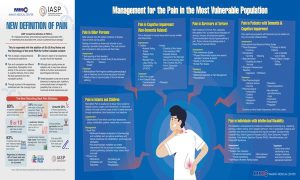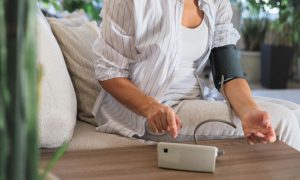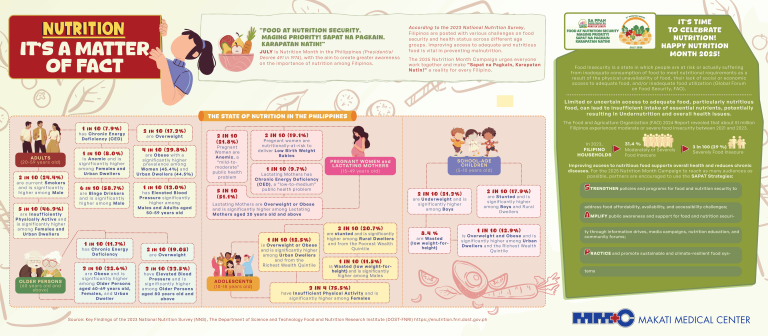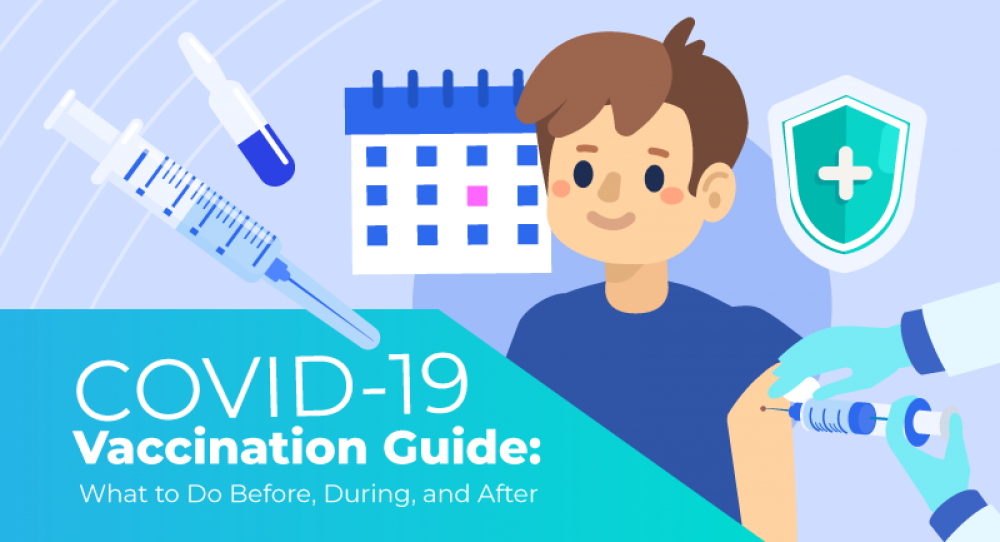
With COVID-19 and its variants threatening the health and safety of many and herd immunity still a long way to go, getting vaccinated as soon as possible is essential. Knowing what to do before, during, and after vaccination can help achieve the best results possible.
The infographic below will provide a detailed guide on how to prepare for the COVID-19 vaccination.
Before Receiving the Vaccine
-
Seek medical clearance for certain health conditions
Per Department of Health (DOH), the following should seek clearance from their doctors:
- people with autoimmune diseases
- those with Human Immunodeficiency Virus (HIV)
- patients who have undergone transplants
- cancer patients currently undergoing chemo, radio, or immunotherapy
- persons currently on steroid medications
- bedridden individuals
- people in a vegetative state
- those who have a poor prognosis with a life expectancy of 6 months or less
Individuals with allergies to food and medication or other underlying medical conditions should also consult with a healthcare professional before getting vaccinated.
-
Learn more about the vaccines and their side effects
There are several credible online resources available that discuss the different vaccines—how they work, how effective they are, the possible side effects they can cause, and so on. Having this information can help with anticipating any adverse reactions for whichever vaccine will be administered.
-
Research and register for local vaccination programs
Requirements for registration will differ from program to program. Other factors that may affect the vaccination schedule include vaccine availability and qualifications for the various priority groups. Ensure that these requirements are fulfilled to secure a schedule.
-
Get plenty of rest, eat well, and hydrate
The night before the appointment, get adequate rest and drink plenty of water. Should the scheduled vaccination appointment fall during mealtime, make sure to eat before heading to the venue to get vaccinated.
-
Prepare the requirements
Persons with comorbidities may need to bring proof of their health condition. They may present a medical certificate, prescription for medicines, hospital records such as the discharge summary or medical abstract, surgical records, and pathology reports or lab results. Certain medical conditions will need either hard copy or electronic medical clearance from their doctors.
-
Ensure that there are no conflicts with the vaccination appointment
If necessary, take a leave of absence from work or delay any commitments that may conflict with the scheduled appointment. It is also recommended to have a clear schedule for the following day if side effects manifest.
During Vaccination
-
Know where the designated vaccine area is
-
Wear proper vaccination-friendly clothing
-
Bring a bottle of water to stay hydrated
Staying hydrated is not only vital for everyday health, but it can also help lessen or prevent discomfort from the vaccine’s possible side effects. Having a bottle of water on hand makes it easier to keep hydration up while waiting for the vaccine to be administered. Conversely, dehydration can cause dizziness and constipation—symptoms that can worsen side effects.
-
Accept whichever vaccine is available
The severity of the current pandemic makes vaccination critical to achieve herd immunity. It is imperative to accept whichever vaccine is available.
-
Opt for a non-dominant arm injection
-
Avoid taking pain relievers on the day of the vaccination
After Vaccination
-
Remain at the vaccination site for observation
According to the DOH, severe side effects that occur very rarely may include itching, fainting, vomiting, difficulty breathing, wheezing, swelling of the face, and tightening of the throat. If any of these or other unusual symptoms occur, notify a health worker immediately.
-
Expect side effects
The DOH has listed the following as possible side effects after receiving the vaccine: irritation on the injected arm (such as tenderness, pain, warmth, redness, itching, or swelling), fatigue and tiredness, chills or feeling feverish, headaches, joint pain or muscle ache, and a general feeling of unwellness.
-
Continue healthy habits and personal care
Eating a well-balanced diet, getting regular exercise, and drinking the right amount of water aid the body in maintaining its condition. Getting enough sleep and practicing good hygiene can also strengthen the immune system even after the vaccine.
-
Avoid alcohol or tobacco consumption
-
Prepare for the second vaccination appointment
Preparation for the second appointment includes maintaining records of any side effects experienced from the first dose and ensuring that the assigned schedule is free of any conflicting events or other appointments.
-
Stay protected by following current health protocols
Following the current health protocols like using a mask and face shield, regularly washing or sanitizing hands, avoiding crowded places, maintaining one-meter physical distancing, and ensuring good ventilation at home or work can prevent the spread of the virus.
Don’t Hesitate, Get Vaccinated
In the face of the current global health crisis, countries are racing to control and suppress the spread of the virus and its various mutations. Each qualified person can do their part in putting a stop to the COVID-19 pandemic by getting vaccinated. Not only does it protect the person receiving it, but also the people around them—bringing the world closer to herd immunity.
Reach out to Makati Medical Center for world-class healthcare services and the proper diagnosis, treatment, or management of COVID-19 and other infectious diseases.


